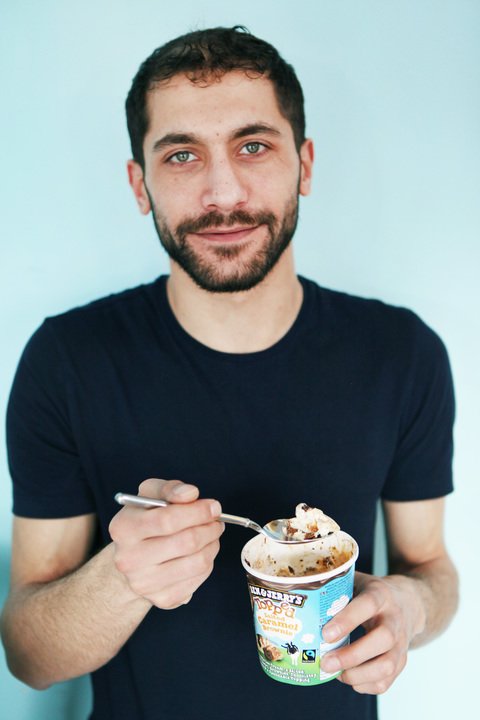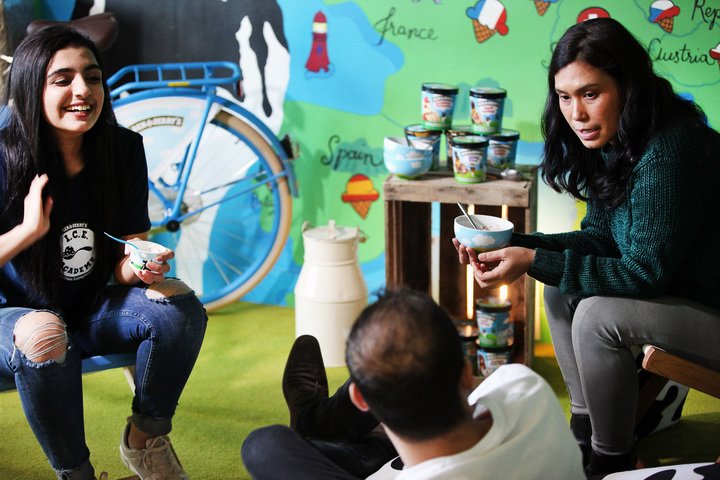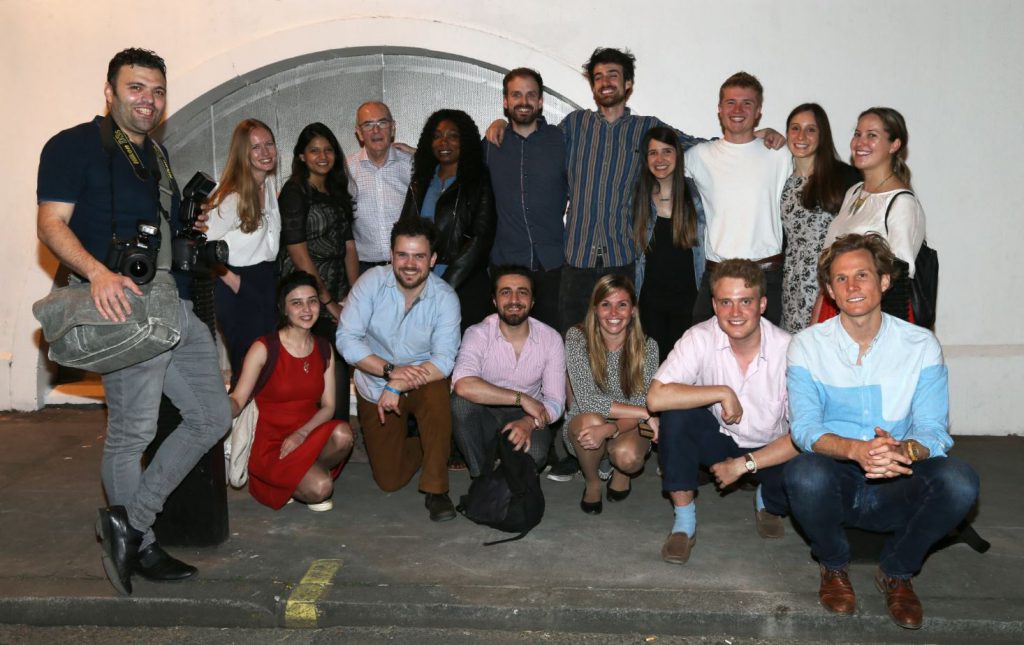Tern: Why we need to empower refugees
The Entrepreneurial Refugee Network is a pioneering new social enterprise that supports and empowers refugees in the UK to realise their potential, fulfil their aspirations and develop their own businesses.
By Olivia Gillman
The refugee ‘crisis’ is one of the biggest contemporary international tragedies, with 65 million people all over the world currently displaced from their home: 120,000 of them in the UK. “We’re looking to change the narrative”, Charlie, co-founder of TERN: The Entrepreneurial Refugee Network, tells me. TERN would like to progressively change the negative stereotypes attached to the word ‘refugee’ in destination countries. Ben, Charlie’s brother and co-founder, agrees: “the phrase ‘refugee entrepreneur’ should read just as reliably, naturally, and relevantly to commercial business as ‘new entrepreneur’- with only positive, not negative, connotations attached to the label.” Charlie explains further: “we need to stop treating refugee migration as a humanitarian ‘crisis’, rather it is an ‘inclusion’ crisis. We need to shift the debate from one focused on aid and immediate alleviation of suffering, where the refugee is a victim. It should instead move to one focused on integration where the refugee has agency and logical systems are setup to facilitate and accelerate their contribution.” A widespread stereotyping and vilification of refugees in the British press throughout 2016 and 2017 backgrounds the brothers’ words. Charlie observes how these prejudices are unjustly spread: “only about 30% of people who apply for asylum in the UK get granted it, and they are thoroughly screened, so the whole notion that refugees disrupt communities in the UK is unfair.”
I speak with Charlie and Ben in a meeting room at their Old Street office based in Tech City College: an academy facilitating young British entrepreneurs’ ventures. The environment provides a contrast to the grey towering skyscrapers and repetitive cosmopolitan rhythms of many of the surrounding streets. The communal office space has a bright, fresh feeling: the perfect space for incubating new, society-shifting, ideas. Charlie and Ben, in turn, facilitate refugee entrepreneurs starting their own businesses: showing them ways to navigate the relevant contours of British business and society . The social enterprise is named after a black and white ‘sea swallow’ the RSPB website describes as ‘the ultimate long distance migrant [depending on a ‘healthy marine environment’].’
“The refugee ‘crisis’ is one of the biggest contemporary international tragedies, with 65 million people all over the world currently displaced from their home: 120,000 of them in the UK.”
Since TERN’s conception a year and a half ago they are working with a collection of 20-30 refugee entrepreneurs and, often approached by others for being such a unique UK project, have worked with organizations including The Guardian, Oliver Wyman, Restart Refugee Support and most recently: Ben & Jerry’s. Their entrepreneurs’ companies range from seed stage through to internationally award winning. Whether firms are already soaring or just organizing their investor pitches, with TERN’s next full business incubator for refugees programmed for 2018, they are consistently providing a sound launching pad for their clients. Charlie and I discuss how theirs is a facilitation needed both by the entrepreneurs themselves, and for the future of an inclusive, internationally competitive British economy: where all citizens’ potentialities, regardless of birth origin, are fully optimized.

At our meeting, Charlie and Ben give me a taster of halloumi. It is one of the best halloumis I’ve ever had . This says a lot because, catch me in any cafe on a Saturday morning, and I will be eating a lot of halloumi. The texture is light and flavorsome, without the stodgy undertones that can often be found in any British supermarket brand. It is made by Razan Alsous’ company: ‘Yorkshire Dama Cheese’ who, certainly deservedly, scooped gold at The World Cheese Awards in 2016. Razan fled Syria with her husband and three children five years ago, settling in Huddersfield. Not easily obtaining new work contracts without British work experience, and disliking the British halloumi she was eating, she combined internet searches in English and Arabic with a background in microbiology to make her own new halloumi recipe. The brand caters appropriately to British audiences by using local Yorkshire milk – an ingredient which seems to contribute successfully to the product’s winning taste.
“a striking example of thoughtful philanthropy in the twenty first century”
Another refugee entrepreneur using TERN’s incubation services is Faith from Zimbabwe with fashion brand: Fagee. Her products incorporate African fashion and decor for the UK market. With the help of TERN, she is turning her business into a social enterprise. In TERN’s full business incubators, CEOs like Faith and Razan are brought together in workshops covering areas from commercial law to managing relationships in the office.

Charlie observes how refugees are commonly portrayed as unskilled , unemployed and living in poverty . He says: “It’s not a lack of willingness or skills that prevent refugees from finding work in their new communities… Often, there are so many barriers to entry in the workforce that refugees are forced to put themselves in a position where they’re likelier to be exploited as illegal workers. As a result, they can eventually become depressed or turn to self-harm. This isn’t helped by the intensive screening programme, where refugees are forced to relive the details of their trauma to substantiate their claim for asylum.”
“We need to stop treating refugee migration as a humanitarian ‘crisis’, rather it is an ‘inclusion’ crisis.”
Having visited the refugee camp (‘the Jungle’) in Calais, he’s been able to experience the inhumanity of the refugee ‘crisis’ up close. Charlie observes: “these people are just looking to live a normal life and are made to feel alienated wherever they go.” He says one of his childhood heroes is Elon Musk: specifically for his philanthropic goals such as reducing global warming and the risk of human extinction. With a similarly internationalist mission, TERN appeals to business people ‘to see refugees’ talents and ambitions, not restrained or defined by their displacement. Their work, in touch with contemporary international issues, is a striking example of thoughtful philanthropy in the twenty first century.

Photo credit: TERN
